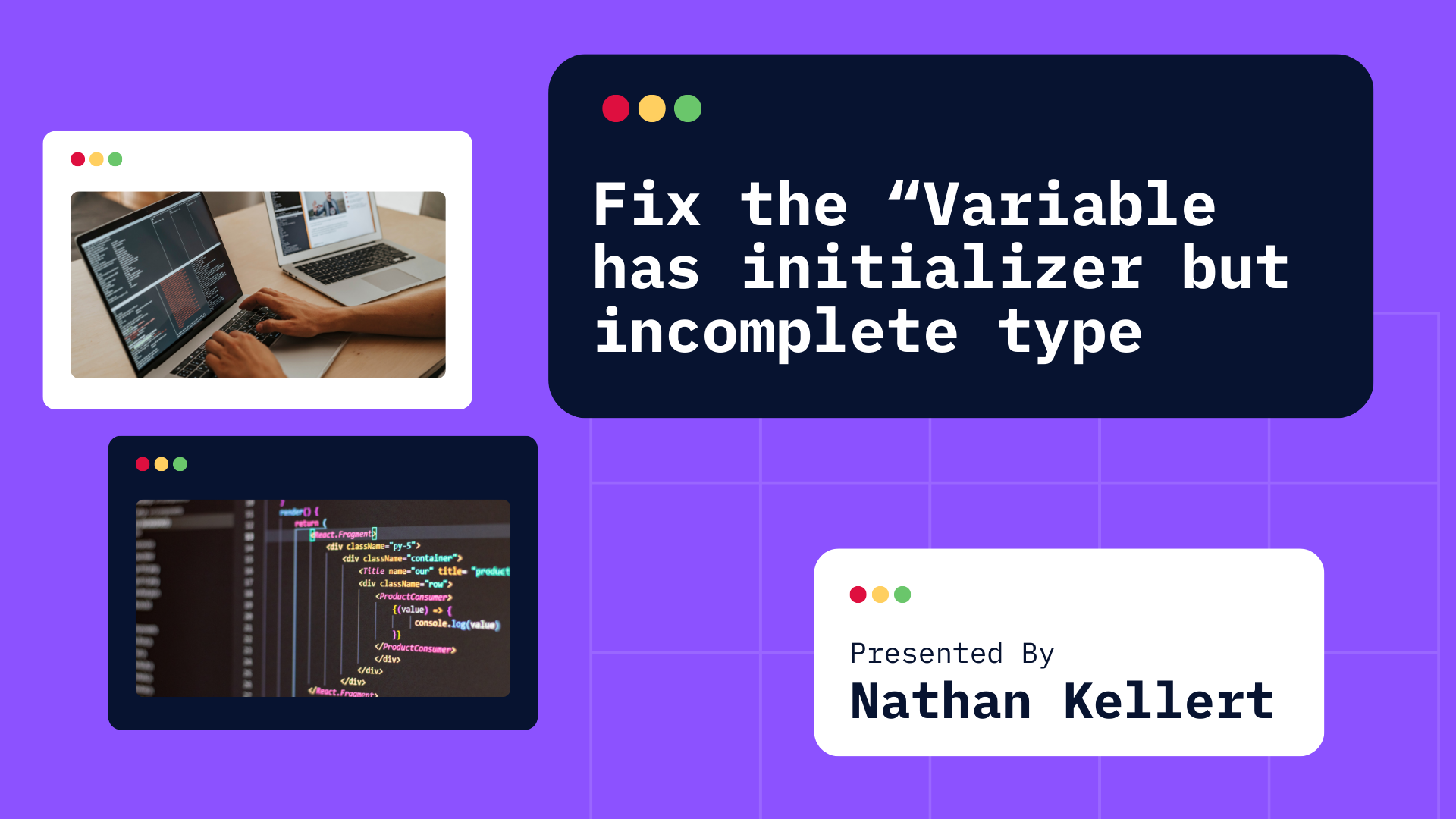
Learn how to fix the variable has initializer but incomplete type error in C structs. This guide explains the cause of the error and provides solutions for proper struct initialization. If you’re working with C programming, you might come across an error like:
variable has initializer but incomplete type
This error typically occurs when you try to initialize a variable of a struct type but the thing here is that the compiler doesnt have the full definition of that struct at the time of initialization.
Essentially, the compiler knows that a struct exists but doesn’t know its complete structure yet.
In this guide, we’ll share down the causes of this error and how you can resolve it ensuring that you can effectively define and initialize structs in your C programs.
Table of Contents
What Does the Error Mean?
When you define a struct in C then you must must ensure that the compiler can access its complete definition when you try to initialize a variable of that type.
The error “variable has initializer but incomplete type” occurs when:
- The struct type is declared but not fully defined before you try to initialize a variable.
- The variable of the struct type is initialized before the compiler knows the exact details of the struct.
For example:
struct MyStruct; // Incomplete struct declaration
struct MyStruct s = { 1, 2 }; // Error: incomplete type
In this example, the compiler knows that struct MyStruct exists, but it doesn’t know what fields or data types are inside MyStruct, so it can’t initialize it.
How to Fix the Error
To resolve this error, you need to ensure that the struct is fully defined before you initialize a variable of that struct type.
Step 1: Define the Struct Properly
Ensure that the full definition of the struct is included before you try to initialize it.
Correct Example:
#include <stdio.h>
// Full struct definition
struct MyStruct {
int x;
int y;
};
int main() {
// Now, the struct is complete and can be initialized
struct MyStruct s = { 1, 2 };
printf("x: %d, y: %d\n", s.x, s.y);
return 0;
}
In this example, we first define the struct with its fields (int x and int y) before initializing it. This allows the compiler to know exactly what the struct contains and it can properly initialize the variable s.
Step 2: Avoid Incomplete Type Declarations
If you only forward declare the struct the compiler won’t know its contents. Ensure the full definition is available before initialization.
Incorrect Example (causing the error):
struct MyStruct; // Forward declaration (incomplete type)
struct MyStruct s = { 1, 2 }; // Error: incomplete type
In this example, struct MyStruct is only a forward declaration, so the compiler cannot initialize s since it doesn’t know the structure’s details. Always provide the full definition of the struct before initialization.
Step 3: Use Forward Declarations Properly (If Needed)
Sometimes, forward declarations are needed, especially when you have complex or circular dependencies between structs. In such cases, you should only declare the struct forward, but not initialize it until the struct is fully defined.
Example of Using Forward Declaration Correctly:
struct MyStruct; // Forward declaration
struct MyStruct *s; // Pointer to an incomplete type (valid)
In this case, you can use pointers to forward-declared structs since the pointer type doesn’t require the full structure definition. You can later allocate memory or initialize it once the struct is fully defined.
Step 4: Check for Missing Includes
In some cases, the error can be caused by missing header files that define the struct. Make sure you include all necessary headers where the struct is defined.
Conclusion
To fix the “variable has initializer but incomplete type” error in C structs:
- Ensure that the struct is fully defined before you try to initialize a variable of that type.
- Avoid using forward declarations when you need to initialize the struct.
- Use proper includes and struct declarations to ensure the compiler has access to the complete struct definition.
With these tips, you should be able to resolve this error and correctly define and initialize structs in your C programs







